Bone loss and belly fat may no longer be certain fates of menopause, thanks to new research from an international team of scientists.
Researcher Mone Zaidi from Icahn School of Medicine at Mount Sina and colleagues describe the discovery of an antibody that reduced fat and increased bone mass in mice in a paper published online May 24 in the journal Nature.
The study authors hope the antibody might also be used to treat other medical conditions associated with abdominal fat accumulation, like metabolic syndrome, cardiovascular disease, cancer, diabetes, and polycystic ovary syndrome.
The Belly Fat Battle
Belly fat doesn't just accumulate in menopause as a result of plunging estrogen levels. It's also found in a variety of conditions — in both men and women — and is worse for your health than fat elsewhere in the body. A specific kind of belly fat, called visceral fat, forms deep in the abdomen, beneath the abdominal wall and close to organs like the liver, stomach, and intestines. Excess visceral fat increases the risk of heart disease, even without any other risk factors. Visceral fat secretes more of a molecule that increases insulin resistance, raising the risk for diabetes.
Fat around the belly is a hallmark of metabolic syndrome — a collection of signs that point to an increase risk factors for serious health problems, like heart disease, diabetes, and stroke. Excess abdominal fat, high blood triglycerides, low HDL ("good") —cholesterol, high blood pressure, and high blood sugar are all signs of metabolic syndrome. Having any three of those five signs makes the diagnosis of metabolic syndrome. Almost 35% of US adults and 50% of those aged 60 or older were estimated to have metabolic syndrome in 2011–2012.
Moderate activity several times a week, combined with a healthy diet low in hydrogenated vegetable oils and fructose-sweetened foods and beverages, can reduce belly fat.
"The use of anti-obesity agents, consisting mainly of those that reduce appetite or inhibit nutrient absorption, is compromised by issues of poor efficacy and unacceptable side effects," the study authors write.
The problems associated with losing belly fat, combined with the problems associated with not losing belly fat, led Zaidi and his team to look for a way to promote loss of belly fat that would be effective and take factors making it difficult out of the equation. (Circumstances like other health conditions, lack of access to affordable healthy food for many low-income communities, and the body's tendency to react to perceived crisis by holding onto fat can all complicate weight management.) They looked at the cause of menopausal belly fat for a solution.
The Anti-Fat Antibody
The pituitary gland in the brain makes a compound called follicle-stimulating hormone. In those who have them, this hormone stimulates testicular growth and helps produce a protein involved in the generation of healthy sperm cells and maintaining them until they are ready to be released. In people with ovaries, it's involved in making and releasing estrogen from follicles in the ovaries. During the period just before menopause, this hormone increases and they start to experience bone loss and accumulate belly fat, making it a good choice for Zaidi and his team to target to prevent those unwanted effects.
An antibody made in the lab against part of the follicle-stimulating hormone was tested on male and female mice fed a high-fat diet for three months. Injection of the antibody reduced body fat in either kind of mice and increased the percentage of their lean mass. Total body fat, fat under the skin and visceral fat were all significantly reduced in antibody-treated mice.
Interestingly, female mice with ovaries and those whose ovaries were surgically removed to induce menopause both showed a decrease in both body fat and abdominal fat, and decreased bone loss after treatment with the antibody. These mice also showed increases in brown and beige fat, fat associated with body leanness and increased energy burning.
The next step will be to create an antibody for use in humans and see if it can reduce their belly fat. The scientists are hopeful that their antibody will eventually be used to treat visceral fat accumulation in people with metabolic syndrome, cardiovascular disease, cancer, diabetes, and polycystic ovarian syndrome. The new antibody may not just decrease bone loss and belly fat in menopausal people, but reduce adverse health consequences in other people with abdominal belly fat.
Just updated your iPhone? You'll find new Apple Intelligence capabilities, sudoku puzzles, Camera Control enhancements, volume control limits, layered Voice Memo recordings, and other useful features. Find out what's new and changed on your iPhone with the iOS 18.2 update.





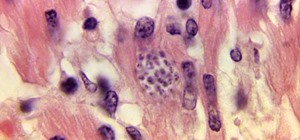
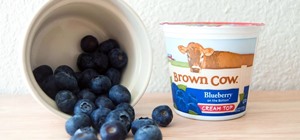


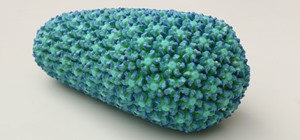


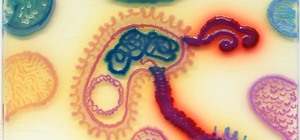
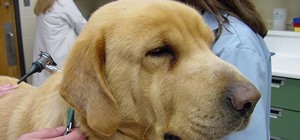
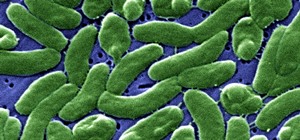




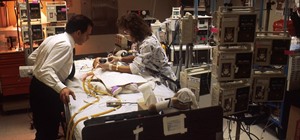

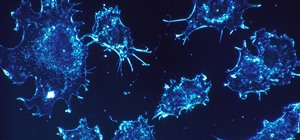


Be the First to Comment
Share Your Thoughts